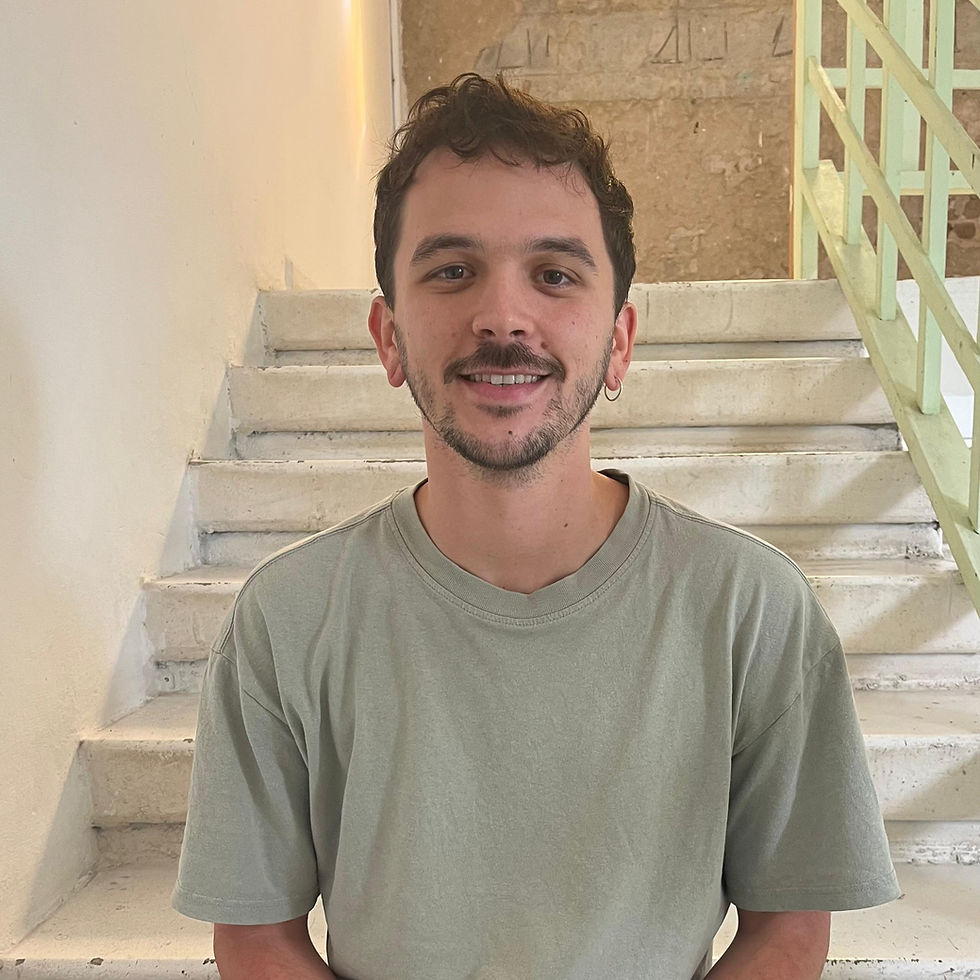Standing with Culture of Solidarity
- Jul 17, 2025
- 3 min read
Culture of Solidarity is doing what few dare to do right now - they have chosen not to stay silent.
A few days ago, they announced the end of their activity at the Teder space, which was their home for the past four years. This decision came following the revelation that one of the owners, Shahar Segal, served as a spokesperson for GHF - an organization that effectively acts as an arm of Israeli policy enforcing control, starvation, and dehumanization of the people of Gaza.
GHF presents itself as a humanitarian organization, but the accumulating evidence in recent months tells a different story: a story about a mechanism that legitimizes military control arrangements, prevents aid from reaching those in need, and uses food as a political tool. The reality of GHF is one in which residents walk kilometers to distribution centers only to be shot at; one of inhumane conditions, systemic starvation, and de facto transfer.
At a time when disinformation and moral decay are rampant, the very choice of Culture of Solidarity members to look reality in the eye, to recognize the imposed complicity, and to refuse it - is a clear, moral, and necessary stance. We at This is Not an Ulpan stand wholeheartedly by their side. This statement is not written out of politeness, but from deep partnership and admiration for the decision and the processes our comrades went through to make it. Over the years, Culture of Solidarity opened their home to us. They generously hosted us, and together with us held meetings, panels, fairs, courses, screenings, community evenings, and political actions. Within the home they built, a space of deep partnership was created - not the formal kind, but one based on trust, shared principles, and a willingness to walk together even when the winds outside are dangerous, gently and determinedly.
Almost two years into the genocide in Gaza, amid starvation, displacement, public silence, and daily dehumanization, cultural and activist spaces are shrinking or falling silent. Some stay silent in the name of “complexity,” some are apathetic, and some become simply powerless - what Hannah Arendt describes as both a consequence and an enabler of totalitarian violence. Culture in this country is becoming more restricted and especially on the left, many spaces have closed, been silenced, or frozen. The decision of Culture of Solidarity not only opposes this silencing but exposes the gap between those who speak about ethics and those who act from it.
Culture of Solidarity may have to vacate its physical space, but what was built there will not disappear. On the contrary, this is exactly the foundation we need to strengthen now: small and courageous actions, difficult moral choices, and radical solidarity that refuses to surrender to the normalization of murder. They took the step. Now they need us. Leaving the physical space costs money. The transition is accompanied by uncertainty. The next space is not yet guaranteed. This is the moment when we, as partners on this path, as community members, must stand with them - not only in statement but in action. To support, to embrace, to assist, to be part of the circle of support holding what is still alive and kicking. (Donation link below)
The day after, when the story of what happened here is told, and they try to understand who stood on the side of truth, even at personal cost, the name Culture of Solidarity will be remembered. And we are proud to be partners in that story. Culture of Solidarity continues. They have not given up, they have only changed form. And we will be there. Because when the curtain falls, and the documentation, the investigation, and the grief begin, we want to know we were on the side that saw, that dared to act, and that held the line of justice even when it was uncomfortable, unpopular, and costly. That is the meaning of solidarity, and that is our choice.



Comments